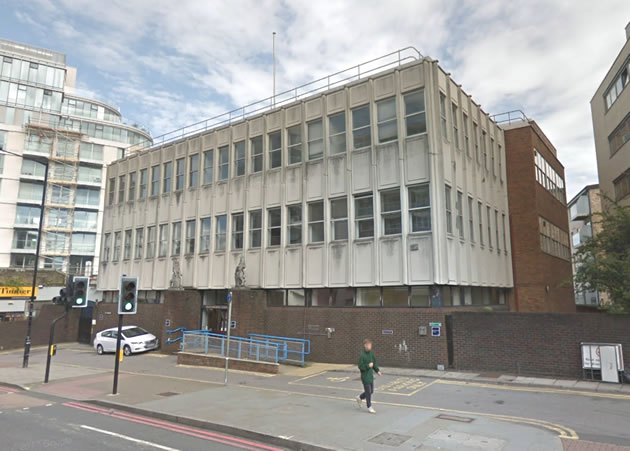Dismay Over Wandsworth County Court Closure Announcement
Site of building on Upper Richmond Road likely to be sold for development

Wandsworth County Court, Upper Richmond Road. Picture: Google Streetview
The Justice Secretary has announced the closure of Wandsworth County Court on Upper Richmond Road, Putney along with six other courts across the country this Tuesday (24 July).
There has been a mixed response to the news with the local MP and legal organisations voicing opposition to the plan.
Subject to the agreement of the relevant judicial bodies, the cases currently heard in Wandsworth County Court will be relocated to Kingston and Clerkenwell & Shoreditch County Courts. Kingston will handle small claims, fast track and multi-track workload and housing possession hearings will move to Clerkenwell & Shoreditch. The site is likely to be sold for redevelopment with the money raised reinvested in the court service. The decision follows a consultation which took place earlier this year.
The Justice Ministry says that during 2016/17, 41% of court and tribunal buildings were used for less than half of their available time. They claim that this, coupled with an estate inherited from previous organisations before the advent of HM Courts and Tribunals Service (HMCTS), meant there was some excess court capacity, with some of the estate in poor condition or in close proximity to another court building.
Lord Chancellor, David Gauke said, “All money raised from the sale of these buildings will be reinvested into the justice system, and we want to reassure communities that those affected by closures will have access to alternative courts.
“We must ensure we use public money effectively and make decisions in the best interest of the wider justice system.”
He added that over 700 responses were received to the nationwide consultation in January and extra travel times as a result of closures were ‘thoroughly considered’. 24 responses specifically related to Wandsworth County Court.
Digital filing of case files, online pleas for minor motoring offences and a paperless system in conjunction with Transport for London for fare evasion cases have significantly reduced the workload of courts. Other online services for small claims, divorce and probate have also lessened use of court buildings.
The ministry have already closed 120 courts over the last seven years and approximately £115million has been raised from these sales.
Local MP Justine Greening argued against the closure in her response to the consultation saying, “Those attending court tend to be from lower income households, less likely to own cars and more likely to have physical and or mental disabilities. Any journey to court which is longer and more difficult will be more likely to create barriers to witnesses, defendants and serving members getting there.”
Local legal charity South West London Law Centres (SWLLC) pointed out that the announcement comes only a few months after the closure of another south London site, Lambeth County Court leaving just three London courts south of the river.
SWLLC offers housing law assistance to local residents through its four offices. It also runs housing solicitor duty desks in south London courts including Wandsworth, Croydon and Kingston, where they help some 1,700 households a year avoid losing their homes. The charity says their significant expertise in this line of work gives rise to serious concerns about the effects of the court closure.
Client services manager Shyam Popat said, “Planning based on Google Maps really does not tell you the whole story. In just one day recently our housing solicitors helped three tenants, all women with children, with combined rent arrears of £14,000, and each with a bailiff appointment. Are these women really expected to travel as far as Shoreditch to not get evicted? We already know that the Shoreditch court is overstretched following the transfer of Lambeth cases there. What kind of justice can we expect when the workload grows further with Wandsworth cases?”
Secondly, the Law Centre fears that the court closure hitting the most vulnerable members of its community hardest, leading to a rise in homelessness that would burden local councils, which are already struggling with a shortage of social housing. Popat adds, “The Ministry of Justice said that the cost of travel was reasonable because attending court is a rare event. But if this event comes when you are already behind on rent, and the stakes for you are so high, many people would end up not attending and would just lose their home.”
The Property Bar Association said, “We are of the view that Wandsworth County Court should not be closed, but the space in it should be used more efficiently. The building is currently in a very poor state of repair but should be refurbished and the majority of hearings take place on the lower ground floor, with some additional hearings on the upper floors. This would be a proportionate use of resources, given the density of population in the area served by the Court and the reality of travelling to alternative Courts.”
In its response to the consultation the Justice Ministry said that Wandsworth County Court was not in good condition. They claimed that deferred maintenance at the time of the publication of the consultation for this building was estimated at £510,000. In 2016/17 the running costs of the building (i.e. excluding people costs) for Wandsworth County Court were approximately £270,000.
They concluded, “Given that the workload of the court can be accommodated elsewhere within a reasonable travel distance, better value for money can be attained by exiting and making better use of other courts in the area, while maintaining access to justice.”
In the coming months, there will be consultation with the Departmental Trade Union on staffing impacts and the ministry will be working with judiciary on implementation plans.
July 24, 2018
Related links
|